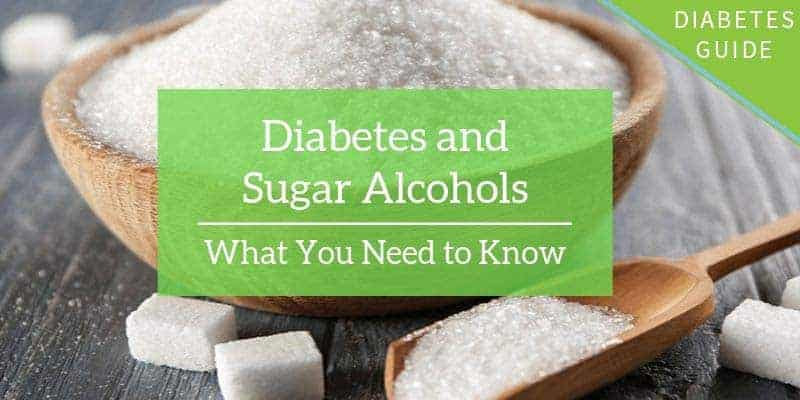In case you’ve skilled even one Valentine’s Day or Christmas because you had been identified with diabetes then you definately’ve doubtless eaten a number of of these “Sugar-Free Russell Stover’s” candies. They’re sweetened primarily with “sugar alcohols” with greater than 7 or 8 grams in every chocolate.
However sugar alcohols aren’t all the time a innocent alternative for sugar. And there’s multiple sort.
On this article, we’ll have a look at what sugar alcohols are constituted of, how they do or don’t influence your blood sugar, and the unwanted effects of consuming an excessive amount of of something containing sugar alcohols.
For a information to pure sweeteners, learn The Finest Sweeteners for Folks with Diabetes.
What are sugar alcohols?
Sugar alcohols aren’t really sugar or alcohol. As an alternative, they’re a sort of carbohydrate whose chemical construction is related to each sugar and alcohol.
Discovered naturally in crops — vegatables and fruits — in the present day’s sugar alcohols are typically manufactured from cheaper sources like sucrose, glucose, and starch.
The potential advantage of sugar alcohols for an individual with diabetes is that they don’t seem to be totally absorbed and digested by the physique, which suggests you get the candy taste with out the complete serving of eventual glucose in your bloodstream.
Whereas all of them style “candy,” they don’t style similar to sugar. Some have a extra metallic, chemical, or iron-like style.
You may decide if a meals comprises sugar alcohols by trying on the vitamin panel — will probably be listed beneath “Whole carbohydrate” as “Sugar alcohols” or extra particularly by the precise sort of sugar alcohol. And by studying the checklist of elements to determine precisely what sugar alcohol was used.
Nonetheless, not all sugar alcohols are created equal. Let’s check out the different sorts.
Sorts of sugar alcohols
The sugar alcohols you’ve most likely seen on older packaged “sugar-free” meals embrace sorbitol and maltitol, however there are numerous completely different varieties.
- Erythritol: constituted of wheat or corn, utilized in meals — thought-about the most secure!
- Sorbitol: Made largely from potatoes, utilized in meals
- Lactitol: Made out of whey (dairy), utilized in meals and as a laxative
- Maltitol: Made out of wheat, tapioca, or corn, utilized in meals
- Xylitol: Made out of birchwood, utilized in medicines and meals (*NOTE: Xylitol might be deadly if eaten by a canine! Steer clear of your pets — even sugar-free gum could possibly be harmful.)
- Glycerol / Glycerin / Glycerine: used primarily in medicines, not meals
- Hydrogenated starch hydrolysates: constituted of potato, corn, or wheat, utilized in meals
- Isomalt: Made out of beets, utilized in meals
- Mannitol: Made out of sugar, utilized in medicines and meals
How do sugar alcohols influence your blood sugar?
The influence of sugar alcohols in your blood sugar varies tremendously relying on which one you’re consuming. (Learn the elements checklist and the vitamin panel to find out which one is in what you’re consuming!)
On the whole, their calorie content material can vary from 1 to three energy per gram in comparison with 4 energy per gram for primary sugar.
Which means that sugar alcohols containing 3 energy per gram can have an effect on your blood sugar almost as a lot as common white sugar.
Erythritol comprises almost zero energy per gram and has change into extremely popular in ketogenic and low-carb baking because of this.
Isomalt additionally comprises basically zero energy per gram and is utilized in many packaged “sugar-free” meals.
Sorbitol, maltitol, and hydrogenated starch hydrolysates, however, comprise almost 3 energy per gram. These are each generally utilized in “sugar-free” chocolate, sweet, and different packaged meals.
The variety of grams of those sugar alcohols listed on the vitamin label received’t influence your blood sugar as a lot as the identical quantity in white sugar, however they will elevate your blood sugar some.
The easiest way to search out out how a lot is to test your blood sugar usually after consuming something containing sugar alcohol as its main sweetener.
Make a remark of how a lot insulin you took to cowl the carbohydrates listed on the vitamin label and/or how your blood sugar reacted throughout and after the primary 2 hours of consuming it.
Each different sugar alcohol falls someplace within the center, with round 2 energy per gram in comparison with white sugar’s 4 energy per gram.
Security and side-effects of sugar alcohols
Are sugar alcohols fit for human consumption? Briefly — sure — sugar alcohols are typically protected to devour; nevertheless, they need to be eaten in cautious moderation.
The unwanted effects of consuming sugar alcohols are known as “frequency-based hostile results,” which implies that consuming an excessive amount of in at some point or consuming them too usually all through a single week can result in some uncomfortable signs.
“Sugar alcohols are slowly and incompletely absorbed from the small gut into the blood,” explains the Meals and Drug Administration. “As soon as absorbed, they’re transformed to vitality by processes that require little or no insulin. A number of the sugar alcohol isn’t absorbed into the blood. These cross by means of the small gut and are fermented by micro organism within the massive gut.”
Widespread unwanted effects of consuming an excessive amount of sugar alcohol in at some point are:
- Gasoline
- Cramping,
- Free stools
- Diarrhea.
The signs might final for a complete day whereas your digestive system is working the sugar alcohols out of your system.
Some folks discover that the longer they proceed to devour meals containing sugar alcohols, the less uncomfortable digestive signs they expertise.
Really helpful each day consumption of sugar alcohols
There isn’t a clear consensus on the really helpful max each day consumption of sugar alcohols.
The Meals and Drug Administration (FDA) requires all meals that will trigger you to devour greater than 50 grams of sorbitol in at some point have the label: “Extra consumption might have a laxative impact”.
Sorbitol is among the harsher sugar alcohols in your digestive system.
Whereas there aren’t particular suggestions for each sort of sugar alcohol, a restrict of fifty grams is a sensible amount to use throughout the board.
Must you embrace sugar alcohols in your weight loss plan as an individual with diabetes?
It is a very private determination. For some, baking with erythritol is what makes them be ok with having fun with desserts, and helps them obtain their blood sugar targets with out feeling disadvantaged.
For others, sugar substitutes aren’t definitely worth the digestive troubles, the funky aftertaste, or the general feeling of consuming a “pretend” model of the true factor.
After all, give sugar alcohols a strive! You may’t know in the event that they’re a superb match for you and your diabetes targets till you strive them.










